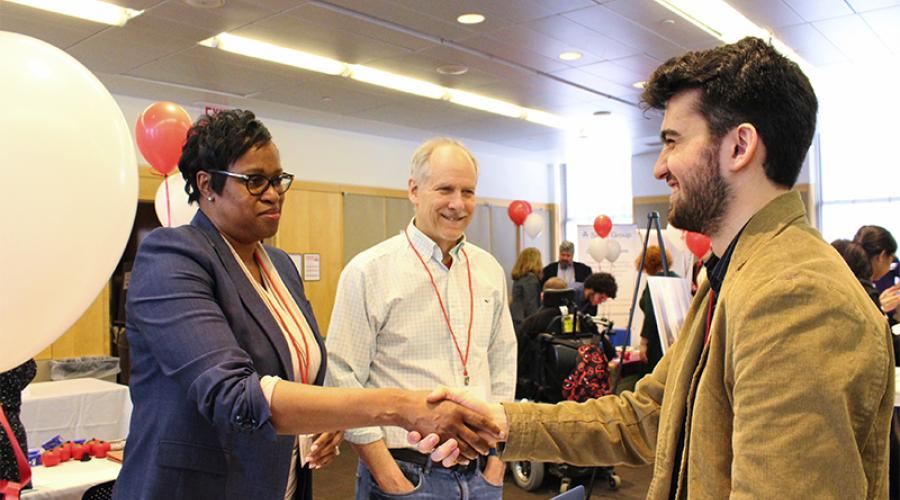
Connecting the Next Generation of Labor Leaders
The road less traveled is well-known to Alex Feltham MILR ’08.
After graduation, rather than embarking on a more traditional career path, Feltham decided to pursue his passion for social justice. Now employed as a Senior Program Officer for the Solidarity Center, Feltham credits his ILR education for equipping him with the skills needed to succeed as a worker advocate.
“ILR's capacity to train the next generation of worker advocates is unmatched,” Feltham said.
“The curriculum not only challenged me intellectually but also played a central role in shaping my future career and life choices.”
Next week, Feltham returns to ILR for the Social Justice Career Fair, an annual event that connects students with prospective employers from a variety of advocacy organizations. He will be joined by more than 25 employer representatives from nonprofits, labor unions and think tanks.
The career fair also lets students learn about the unique challenges of navigating the non-profit job market from alumni who have successfully made careers in social justice organizations.
Feltham says he encourages students interested in social justice to persevere in their job search, even if they don’t find an immediate opening with the organization of their choice.
“The paths that lead individuals to pursue social justice careers are not necessarily linear or logical, but this is normal and positive. If you keep learning, keep questioning, and keep true to the values that guide you, your path will eventually take you to the places where you can make your greatest contributions,” Feltham advised.
“Learn from the experiences of others who work in the field, and especially from fellow ILR alumni, who are always willing to help the next generation prepare to take the work forward.”
“Persistence will ultimately pay off.”
David Wazeter Ph.D. ’91, program service manager for the Pennsylvania State Education Association, is returning for the fourth year to the Social Justice Career Fair. Wazeter’s advice to current students is simple: take full advantage of the interdisciplinary nature of the ILR curriculum.
Students interested in social justice “should also think about taking courses in business,” he said. Courses in human resources are also helpful. “Those courses are so valuable, because unions need to understand the employer’s financial situation. As a union rep, I have often found myself drawing on coursework in finance, accounting, selection, performance evaluation and compensation. If you are going to challenge an employer and their practices, you need to learn to think like an employer.”
“The second reason I say that is because unions also have to hire people. Learning how to select the best people is a big deal. That can determine whether you’re good or great as a union.”
The career fair helps employers forge connections with students interested in social justice early on in their ILR career, and to recruit graduating students for open positions with their organization.
Wazeter also sees the career fair as a chance to educate students about the breadth of career choices available to them.
“There is a tendency for courses to focus on the private sector. I like to go [to the fair] to open people’s eyes, to let them think about what it’s like working for a public union, and to encourage them to keep their options open.”
Employers attending this year’s career fair include the Service Employees International Union, the National Labor Relations Board, the Economic Policy Institute and the American Federation of Teachers.
The fair will be held from 1 to 4 p.m. in the ILR Conference Center (King-Shaw Hall). Students looking for an updated list of employers attending should visit Handshake. Tips for students on how to make the most of the fair can be found here.


